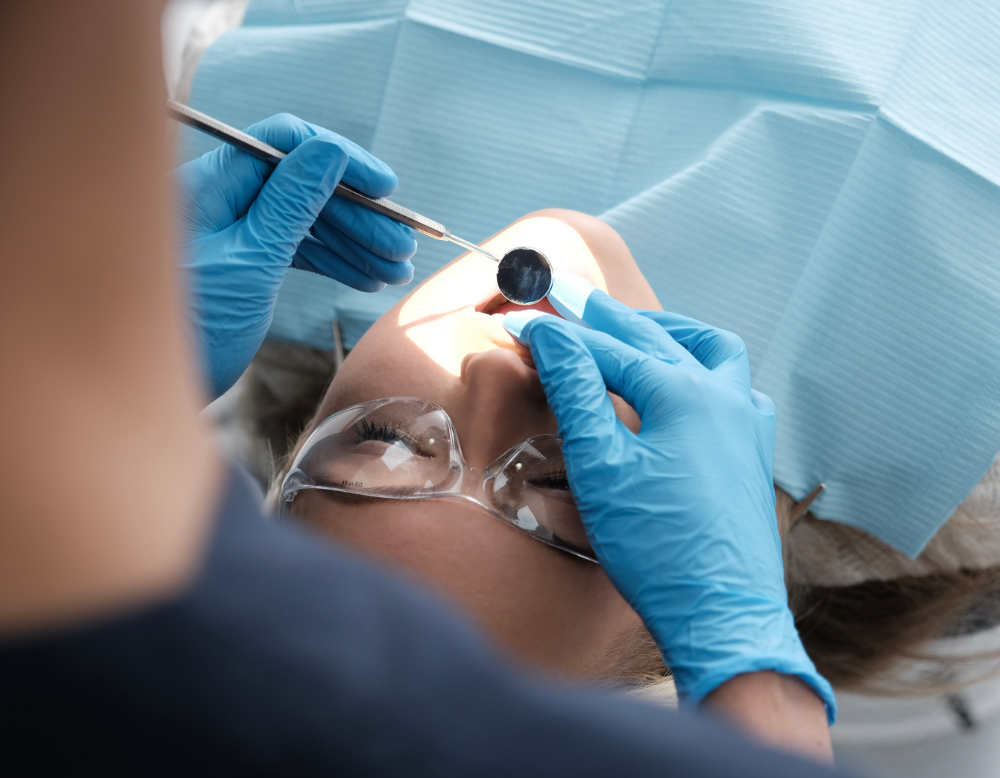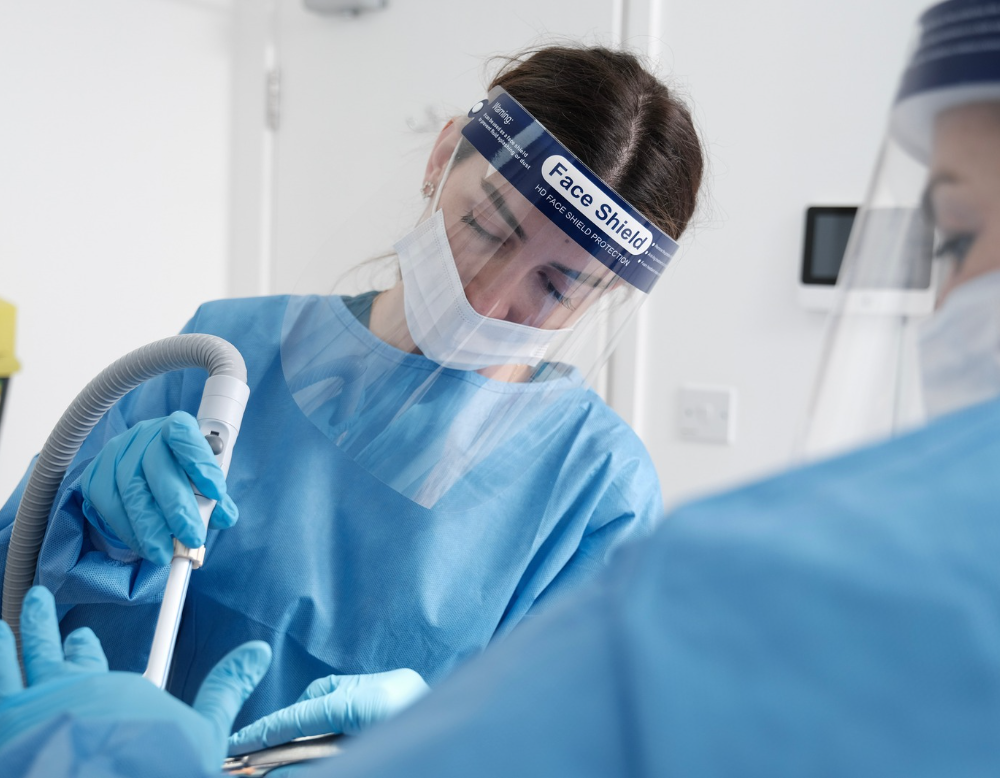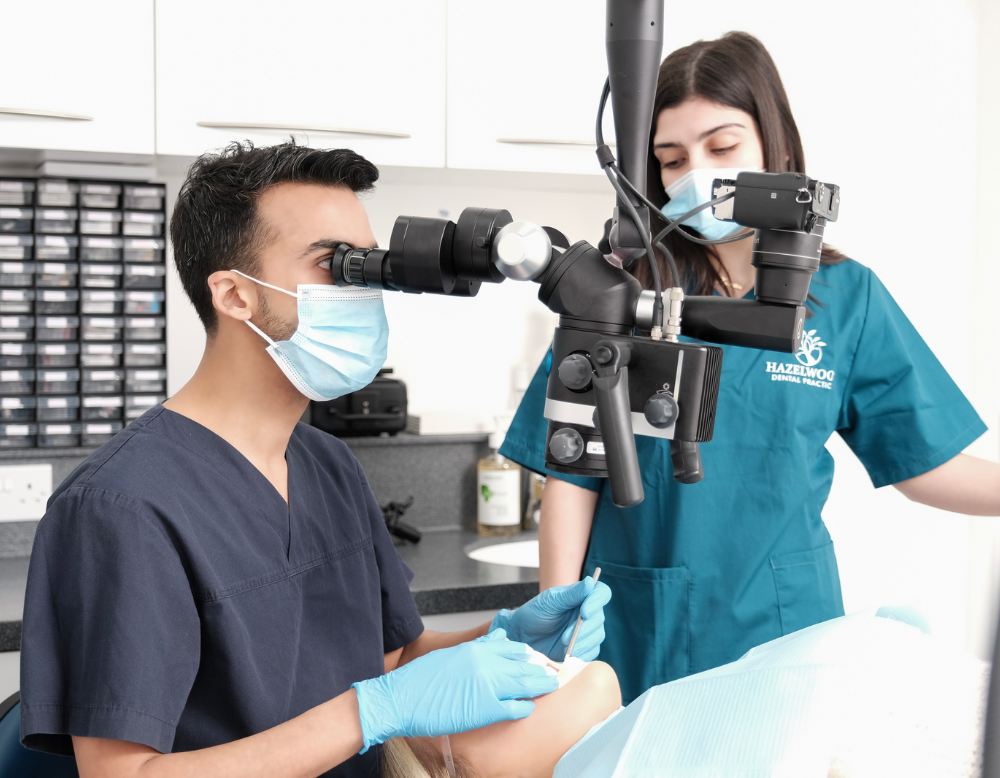









Gum disease is a common condition in the UK. Most people suffer from gum disease at least once in their lifetime. The symptoms aren’t pleasant – they include bleeding gums and bad breath. In this article, we’ll cover our patients’ most common questions about gum disease, including what to do if you think you have it.
The cause of gum disease is simply plaque on your teeth. Plaque often contains bacteria that can irritate your gums. This irritation makes your gums sore, red, and swollen.
Early signs of gum disease are gingivitis (bad breath) and red and swollen gums. Your gums might also bleed when you brush them.
If gum disease is left untreated, you might develop a more serious condition called periodontitis. This is a serious type of gum disease that damages the tissue and bone holding your teeth in place. Eventually, your teeth may become loose and fall out.
Don’t panic. If you’re experiencing symptoms of gum disease, then make an appointment with a dentist. The dentist will be able to tell you for certain whether or not you have gum disease.
Typically, the dentist will place a periodontal probe (which is basically a thin metal stick) against your teeth to assess the depth of your gums. The dentist may also want to do X-rays to check the health of your teeth and jaw.
The treatment for gum disease depends on its severity. With mild gum disease, the solution is to simply remove the plaque on your teeth. Your dentist can do this for you, or you can remove mild plaque yourself at home by brushing and flossing.
Severe gum disease is harder to treat. Treatment usually involves further dental treatment and may even require surgery. This will be performed by Dr Hussein Asaria, our Principal Dentist.
This is why frequent check-ups are a good idea. Dentists can spot gum disease in its early stages before it develops into a more severe form.
Gum disease is easy to prevent: you just have to maintain a good oral hygiene routine. This includes brushing your teeth twice a day and flossing at least once a day.
You should also visit a dentist regularly for check-ups. A dentist can spot the signs of early gum disease and treat it before it develops into a more serious problem. If you’ve had gum disease in the past, you will probably need to visit your dentist fairly frequently, around every three to six months. If you have a history of good oral health, then you might only need to see your dentist once every one or two years. Your dentist will be the best judge of how often you need check-ups.
Back to Blog
“I had a tooth extraction with Dr Femi and his nurse, Christine, today; they are the best! I was very nervous, and they both made me feel at ease, ensured I was okay and explained the process in detail to me. I am very happy and already feel better. Dr Femi is the best and...”
“I’m so happy I’ve been given the all-clear after being fitted with dental implants. Thank you, Dr Hussein Asaria, for performing the surgery with minimal discomfort and feeling so at ease throughout the procedure. I am so glad the procedure went smoothly, and I recovered really well. I am pleased with the results and wish...”
“I was a nervous patient and was worried about having my tooth taken out. Dr Femi and his nurse were so amazing. I had a denture to be fitted, and he did that. It was done very quickly, and the nurse was very caring. I have to say I have had no pain since. This...”
“Dear Hazelwood Dental Practice, just to let you know that Femi and Christina did a fantastic job on my mother removing 3 front teeth. She had a bit of pain with the injections, but apart from that, there was no pain with the removal of the teeth and no pain thereafter. As my mother was...”
“I had a tooth extraction with Dr Femi and his nurse, Christine, today; they are the best! I was very nervous, and they both made...”
“I’m so happy I’ve been given the all-clear after being fitted with dental implants. Thank you, Dr Hussein Asaria, for performing the surgery with minimal...”
“I was a nervous patient and was worried about having my tooth taken out. Dr Femi and his nurse were so amazing. I had a...”
“Dear Hazelwood Dental Practice, just to let you know that Femi and Christina did a fantastic job on my mother removing 3 front teeth. She...”
Error: No connected account.
Please go to the Instagram Feed settings page to connect an account.


